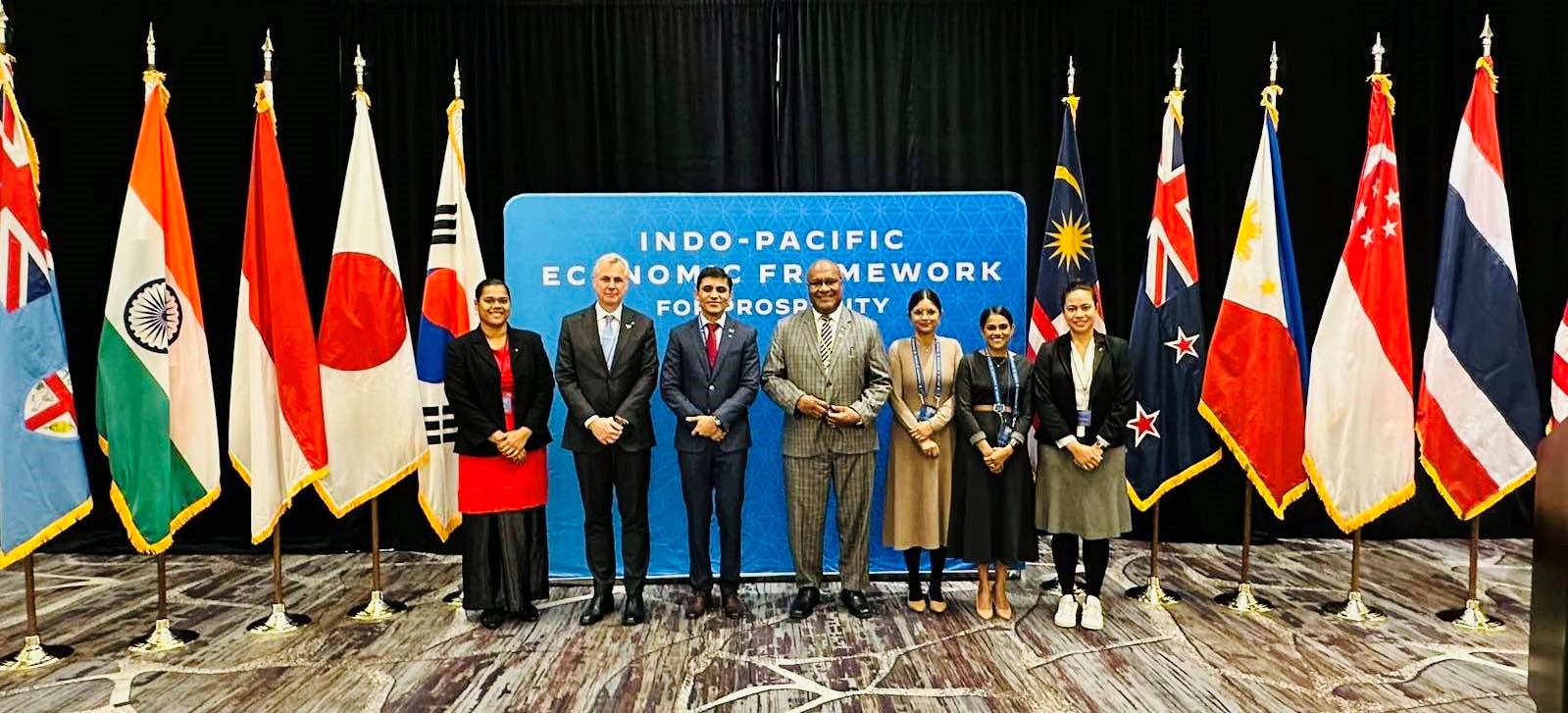San Francisco, 14 November 2023 – Deputy Prime Minister and Minister for Trade Co-operatives SME’s and Communication, Honourable Manoa Kamikamica, alongside 13 other IPEF Minister, signed the landmark Indo-Pacific Economic Framework (IPEF) Supply Chain Agreement today on the margins of the third IPEF Ministerial meeting.
Following the launch of IPEF in Japan on May 2022, and since the release of the IPEF Ministerial Statements on 9 September 2022, the IPEF partners have worked constructively, including through four rounds of in-person negotiations, several virtual intersessional meetings, and numerous bilateral meetings. IPEF partners announced the substantial conclusion of the negotiations in May 2023. Following domestic consultations and a legal review, the text of the agreement was made public on 10 September 2023. Fiji’s Parliament unanimously approved by IPEF Supply Chain Agreement on 13 September 2023.
The IPEF partners are committed to working towards the realisation of cooperation, including engaging with businesses and utilising technical assistance and capacity building to increase investment in critical sectors, key goods, physical and digital infrastructure, transportation, and workforce projects.
Under the proposed IPEF Supply Chain Agreement, the IPEF partners seek to:
- provide a framework to build their collective understanding of significant supply chain risks, supported by each partner’s identification and monitoring of its own critical sectors and key goods;
- improve crisis coordination and response to supply chain disruptions and work together to support the timely delivery of affected goods during a crisis;
- ensure that workers and the businesses, especially micro-, small-, and medium-sized enterprises, in the economies of IPEF partners benefit from resilient, robust, and efficient supply chains by identifying disruptions or potential disruptions and responding promptly, effectively, and, where possible, collectively;
- better prepare businesses in the economies of the IPEF partners to identify, manage, and resolve supply chain bottlenecks, including by strengthening supply chain logistics and infrastructure;
- facilitate cooperation, mobilise investments, and promote regulatory transparency in sectors and goods critical to national security, public health and safety, or the prevention of significant or widespread economic disruptions;
- respect, promote, and realise, in good faith, labour rights in IPEF partners’ supply chains, in recognition of the essential role of workers in achieving greater supply chain resilience;
- ensure the availability of a sufficient number of skilled workers in critical sectors and key goods, including by upskilling and reskilling workers, promoting inclusivity and equal access, and increasing comparability of skills credentials frameworks;
- identify opportunities for technical assistance and capacity building in strengthening IPEF partners’ supply chains; and
- respect market principles, minimise market distortions, including unnecessary restrictions and impediments to trade, and protect business confidential information.
IPEF is a novel type of initiative that will provide new channels of collaboration amongst regional countries. Members of IPEF are Australia, Brunei Darussalam, Fiji, India, Indonesia, Japan, Malaysia, New Zealand, Philippines, Singapore, South Korea, Thailand, the United States of America, and Vietnam. Together the 14 represent 40 percent of world GDP.
-ENDS-


